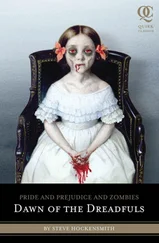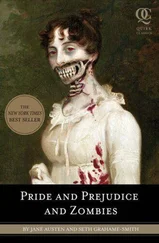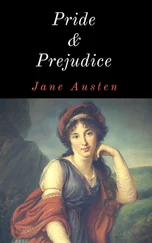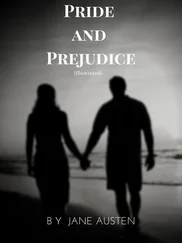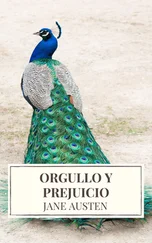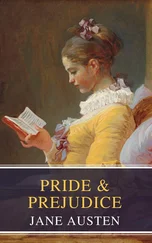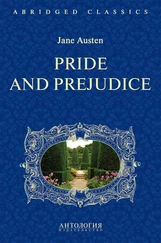Jane Austin - Pride and Prejudice
Здесь есть возможность читать онлайн «Jane Austin - Pride and Prejudice» — ознакомительный отрывок электронной книги совершенно бесплатно, а после прочтения отрывка купить полную версию. В некоторых случаях можно слушать аудио, скачать через торрент в формате fb2 и присутствует краткое содержание. Жанр: unrecognised, на немецком языке. Описание произведения, (предисловие) а так же отзывы посетителей доступны на портале библиотеки ЛибКат.
- Название:Pride and Prejudice
- Автор:
- Жанр:
- Год:неизвестен
- ISBN:нет данных
- Рейтинг книги:3 / 5. Голосов: 1
-
Избранное:Добавить в избранное
- Отзывы:
-
Ваша оценка:
- 60
- 1
- 2
- 3
- 4
- 5
Pride and Prejudice: краткое содержание, описание и аннотация
Предлагаем к чтению аннотацию, описание, краткое содержание или предисловие (зависит от того, что написал сам автор книги «Pride and Prejudice»). Если вы не нашли необходимую информацию о книге — напишите в комментариях, мы постараемся отыскать её.
Pride and Prejudice — читать онлайн ознакомительный отрывок
Ниже представлен текст книги, разбитый по страницам. Система сохранения места последней прочитанной страницы, позволяет с удобством читать онлайн бесплатно книгу «Pride and Prejudice», без необходимости каждый раз заново искать на чём Вы остановились. Поставьте закладку, и сможете в любой момент перейти на страницу, на которой закончили чтение.
Интервал:
Закладка:
still better, and say nothing of the bad—belongs to you alone.
And so you like this man’s sisters, too, do you? Their manners
are not equal to his.”
“Certainly not—at first. But they are very pleasing women when
you converse with them. Miss Bingley is to live with her brother,
and keep his house; and I am much mistaken if we shall not find a
very charming neighbour in her.”
Elizabeth listened in silence, but was not convinced; their
behaviour at the assembly had not been calculated to please in
general; and with more quickness of observation and less pliancy
of temper than her sister, and with a judgement too unassailed by
any attention to herself, she was very little disposed to approve
them. They were in fact very fine ladies; not deficient in good
humour when they were pleased, nor in the power of making
themselves agreeable when they chose it, but proud and conceited.
They were rather handsome, had been educated in one of the first
private seminaries in town, had a fortune of twenty thousand
pounds, were in the habit of spending more than they ought, and
of associating with people of rank, and were therefore in every
respect entitled to think well of themselves, and meanly of
others. They were of a respectable family in the north of
England; a circumstance more deeply impressed on their memories
than that their brother’s fortune and their own had been acquired
by trade.
Mr. Bingley inherited property to the amount of nearly a hundred
thousand pounds from his father, who had intended to purchase an
estate, but did not live to do it. Mr. Bingley intended it
likewise, and sometimes made choice of his county; but as he was
now provided with a good house and the liberty of a manor, it was
doubtful to many of those who best knew the easiness of his
temper, whether he might not spend the remainder of his days at
Netherfield, and leave the next generation to purchase.
His sisters were anxious for his having an estate of his own;
but, though he was now only established as a tenant, Miss Bingley
was by no means unwilling to preside at his table—nor was Mrs.
Hurst, who had married a man of more fashion than fortune, less
disposed to consider his house as her home when it suited her.
Mr. Bingley had not been of age two years, when he was tempted by
an accidental recommendation to look at Netherfield House. He did
look at it, and into it for half-an-hour—was pleased with the
situation and the principal rooms, satisfied with what the owner
said in its praise, and took it immediately.
Between him and Darcy there was a very steady friendship, in
spite of great opposition of character. Bingley was endeared to
Darcy by the easiness, openness, and ductility of his temper,
though no disposition could offer a greater contrast to his own,
and though with his own he never appeared dissatisfied. On the
strength of Darcy’s regard, Bingley had the firmest reliance, and
of his judgement the highest opinion. In understanding, Darcy was
the superior. Bingley was by no means deficient, but Darcy was
clever. He was at the same time haughty, reserved, and
fastidious, and his manners, though well-bred, were not inviting.
In that respect his friend had greatly the advantage. Bingley was
sure of being liked wherever he appeared, Darcy was continually
giving offense.
The manner in which they spoke of the Meryton assembly was
sufficiently characteristic. Bingley had never met with more
pleasant people or prettier girls in his life; everybody had been
most kind and attentive to him; there had been no formality, no
stiffness; he had soon felt acquainted with all the room; and, as
to Miss Bennet, he could not conceive an angel more beautiful.
Darcy, on the contrary, had seen a collection of people in whom
there was little beauty and no fashion, for none of whom he had
felt the smallest interest, and from none received either
attention or pleasure. Miss Bennet he acknowledged to be pretty,
but she smiled too much.
Mrs. Hurst and her sister allowed it to be so—but still they
admired her and liked her, and pronounced her to be a sweet girl,
and one whom they would not object to know more of. Miss Bennet
was therefore established as a sweet girl, and their brother felt
authorized by such commendation to think of her as he chose.
Chapter 5
Within a short walk of Longbourn lived a family with whom the
Bennets were particularly intimate. Sir William Lucas had been
formerly in trade in Meryton, where he had made a tolerable
fortune, and risen to the honour of knighthood by an address to
the king during his mayoralty. The distinction had perhaps been
felt too strongly. It had given him a disgust to his business,
and to his residence in a small market town; and, in quitting
them both, he had removed with his family to a house about a mile
from Meryton, denominated from that period Lucas Lodge, where he
could think with pleasure of his own importance, and, unshackled
by business, occupy himself solely in being civil to all the
world. For, though elated by his rank, it did not render him
supercilious; on the contrary, he was all attention to everybody.
By nature inoffensive, friendly, and obliging, his presentation
at St. James’s had made him courteous.
Lady Lucas was a very good kind of woman, not too clever to be a
valuable neighbour to Mrs. Bennet. They had several children. The
eldest of them, a sensible, intelligent young woman, about
twenty-seven, was Elizabeth’s intimate friend.
That the Miss Lucases and the Miss Bennets should meet to talk
over a ball was absolutely necessary; and the morning after the
assembly brought the former to Longbourn to hear and to
communicate.
“_You_ began the evening well, Charlotte,” said Mrs. Bennet with
civil self-command to Miss Lucas. “_You_ were Mr. Bingley’s first
choice.”
“Yes; but he seemed to like his second better.”
“Oh! you mean Jane, I suppose, because he danced with her twice.
To be sure that _did_ seem as if he admired her—indeed I rather
believe he _did_—I heard something about it—but I hardly know
what—something about Mr. Robinson.”
“Perhaps you mean what I overheard between him and Mr. Robinson;
did not I mention it to you? Mr. Robinson’s asking him how he
liked our Meryton assemblies, and whether he did not think there
were a great many pretty women in the room, and _which_ he
thought the prettiest? and his answering immediately to the last
question: ‘Oh! the eldest Miss Bennet, beyond a doubt; there
cannot be two opinions on that point.’”
“Upon my word! Well, that is very decided indeed—that does seem
as if—but, however, it may all come to nothing, you know.”
“_My_ overhearings were more to the purpose than _yours_, Eliza,”
said Charlotte. “Mr. Darcy is not so well worth listening to as
his friend, is he?—poor Eliza!—to be only just _tolerable_.”
“I beg you would not put it into Lizzy’s head to be vexed by his
ill-treatment, for he is such a disagreeable man, that it would
be quite a misfortune to be liked by him. Mrs. Long told me last
night that he sat close to her for half-an-hour without once
opening his lips.”
“Are you quite sure, ma’am?—is not there a little mistake?” said
Jane. “I certainly saw Mr. Darcy speaking to her.”
Читать дальшеИнтервал:
Закладка:
Похожие книги на «Pride and Prejudice»
Представляем Вашему вниманию похожие книги на «Pride and Prejudice» списком для выбора. Мы отобрали схожую по названию и смыслу литературу в надежде предоставить читателям больше вариантов отыскать новые, интересные, ещё непрочитанные произведения.
Обсуждение, отзывы о книге «Pride and Prejudice» и просто собственные мнения читателей. Оставьте ваши комментарии, напишите, что Вы думаете о произведении, его смысле или главных героях. Укажите что конкретно понравилось, а что нет, и почему Вы так считаете.


